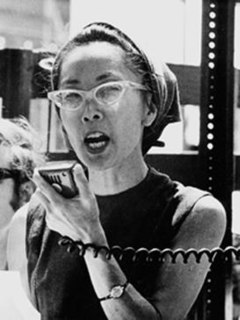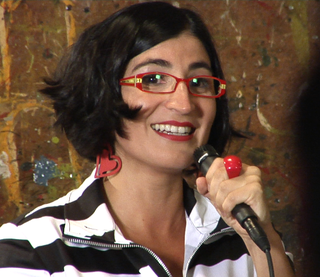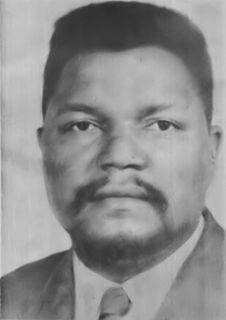A Quote by Yuri Kochiyama
When you're in a black group, you have to keep in mind you're not black. You just have to be sensitive. We have to be appreciative that the black nationalist struggle is a nationalist struggle.
Quote Topics
Related Quotes
What is being black? It's making the most of your life, not taking a single moment for granted. Taking something that's seen as a struggle and making it work for you, or you'll die inside. Not to say that my struggle is like the collective struggle of black America. But maybe my struggle is similar to one black dude's.
I wanted to make sure the focus [in The Land] was on human beings themselves and their decisions, but still connected to the urban environment that people associate as being black. I think I was able to make a film without commenting on "black this or black that" and you still feel the presence of it. There's no one character who's saying "we're all black and we're all in this struggle." It's that you just feel it. Some of that is because we get the sense from a lot of independent films that black people struggle all the time.
In January of 1969, after a meeting to discuss the leadership of UCLA's new Afro-American Program, [Alprentice "Bunchy" Carter and John Huggins, Jr.] were murdered on campus by a rival black nationalist group, the United Slaves Organization. This shook up all the students, black and white, and made us all realize that what we were doing wasn't just an academic exercise, but had repercussions in the real world.
The Organization of Afro-American Unity was an organization that was a secular group. It largely consisted of people that we would later call several years later Black Powerites, Black nationalists, progressives coming out of the Black freedom struggle, the northern students' movement, people - students, young people, professionals, workers, who were dedicated to Black activism and militancy, but outside of the context of Islam.
I knew that the black struggle wasn't my struggle. But I felt like it was my-struggle-adjacent, you know? I've always said that if you turn the dial in one direction, a Muslim is a Jew is an East Asian person is a Native American and so on. I feel very much that all of these struggles are kind of the same and - Hillary Clinton actually said this recently - when you get rid of one barrier, it opens up the gates for a whole bunch of people you didn't even know would benefit from it. So not fighting for the black struggle is like not fighting for the Muslim struggle.
I, however, like black. It is a color that makes me comfortable and the color with which I have the most experience. In the darkest darkness, all is black. In the deepest hole, all is black. In the terror of my Addicted mind, all is black. In the empty periods of my lost memory, all is black. I like black, goddammit, and I am going to give it its due.
I think that Malcolm X was envisioning, even while he was in the Nation of Islam, a black nationalist progressive strategy toward uniting black people across ideological, class lines, denominational religious lines, Christians, as well as Muslims, to build a strong movement for justice and for empowerment.
The violence that we had in the 60's was limited. The next time it will be unlimited because the violence in the 60's was a struggle for human dignity and for human rights. The next struggle will be a struggle for survival and it will not just be limited to Black people or Black against white, but it will be the poor people, the masses of the people of the country, struggling for the right to live or the right to survive.



































